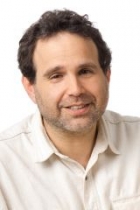Death and deities: A social cognitive perspective
Testing the relationship between fear of death and religious belief
One seemingly simple approach to the question would be to ask whether people who are relatively receptive to religious beliefs do indeed feel comforted about death, even when they do not hold a religious worldview. However, the theoretical relation between religiosity and death anxiety is not as straightforward as it appears. For those who already have a religious worldview, religious belief may be available as a resource to buffer anxiety, but for those who do notbelieve, anxiety might provide a motivation to do so, such that these individuals are more inclined to believe as their anxiety increases. Thus, the relation between religious beliefs and fear of death may depend on prior religious commitment: as atheists increasingly fear death they are increasingly tempted to believe in God, whereas those who already believe in God successfully use that belief to allay their fear of death.


